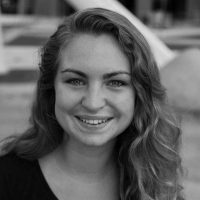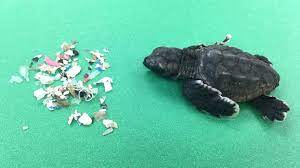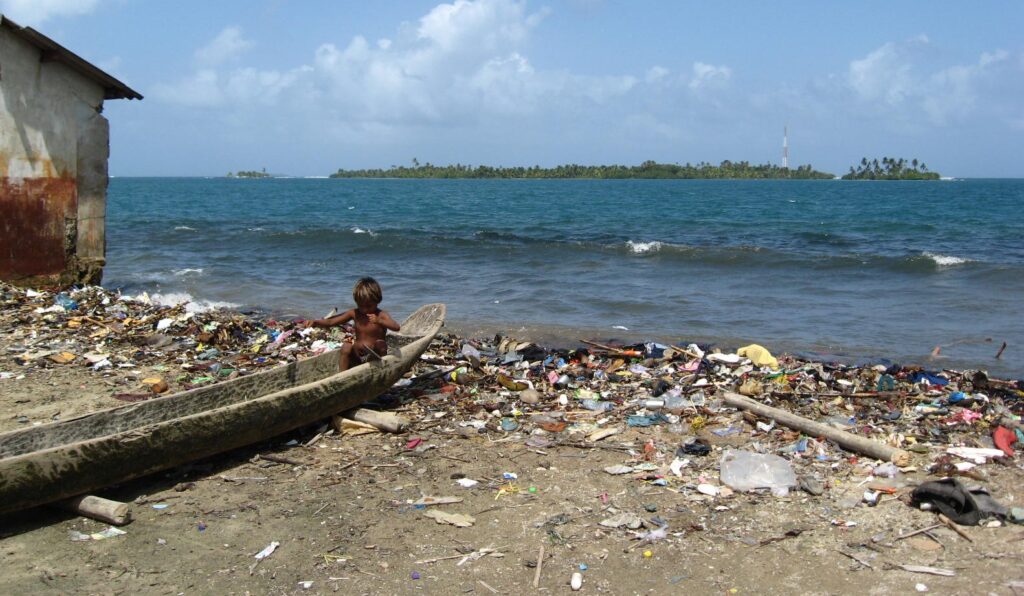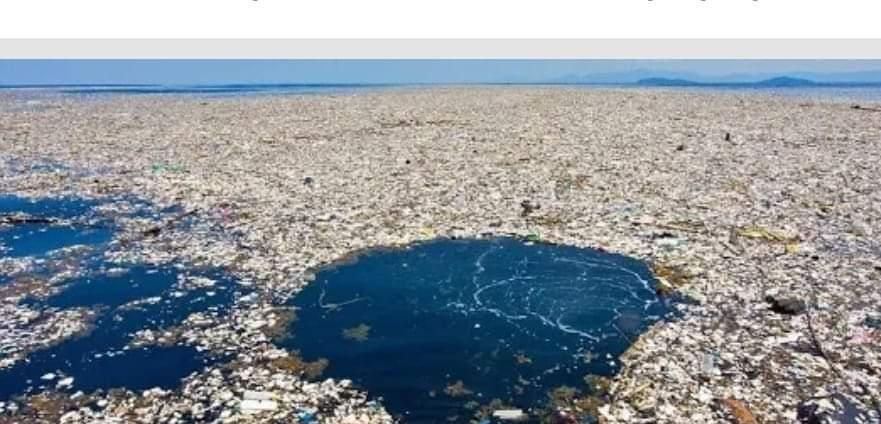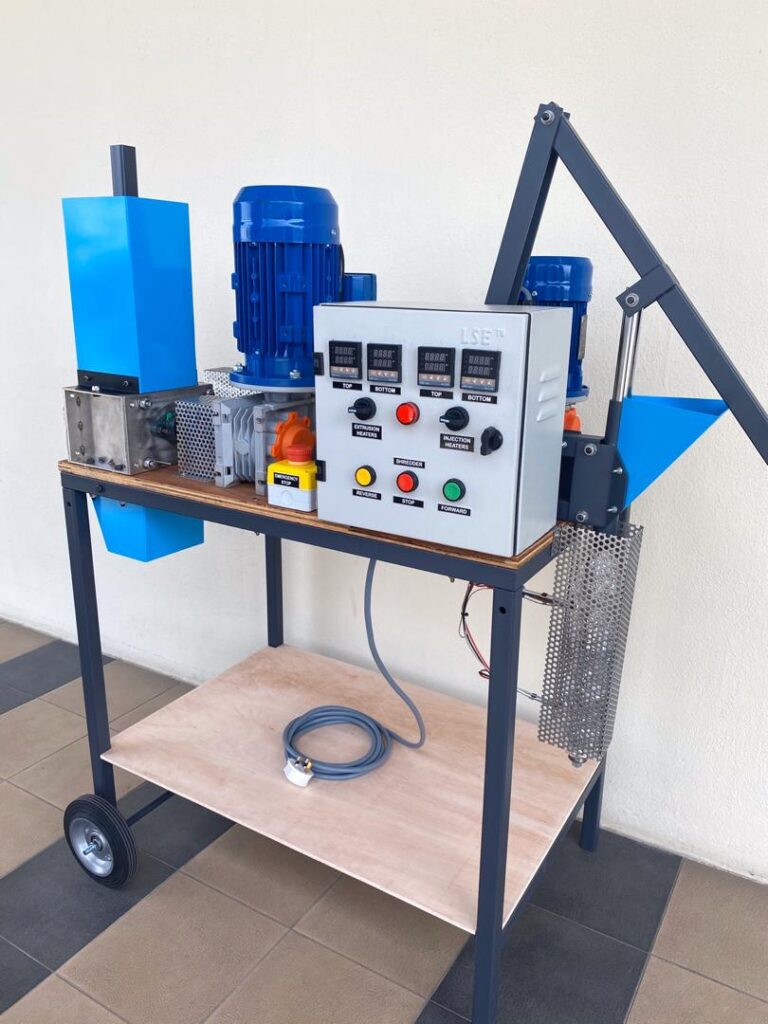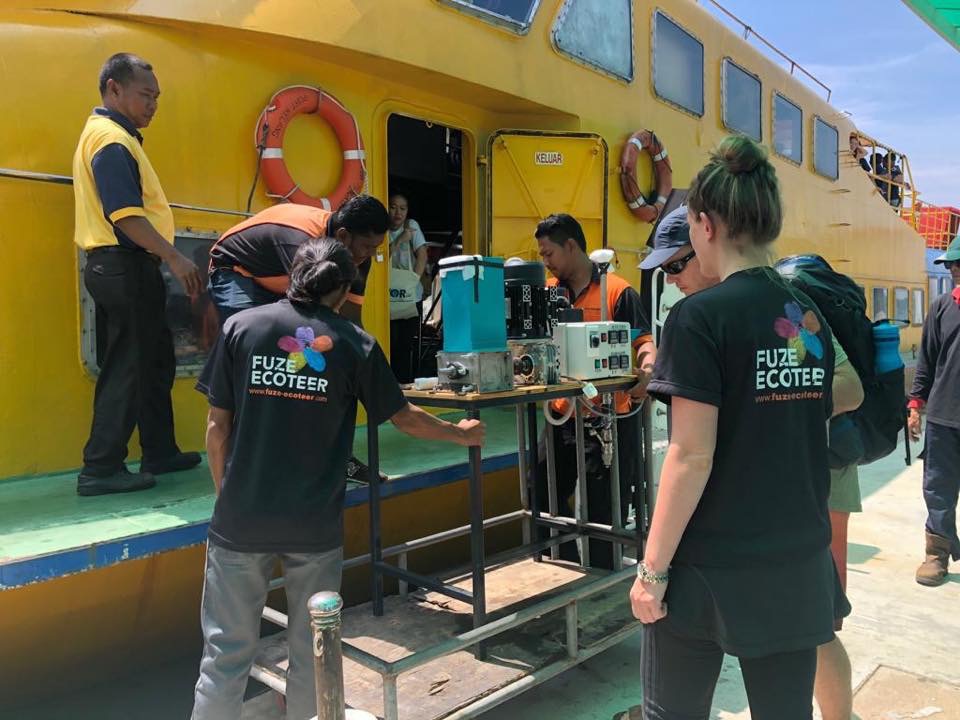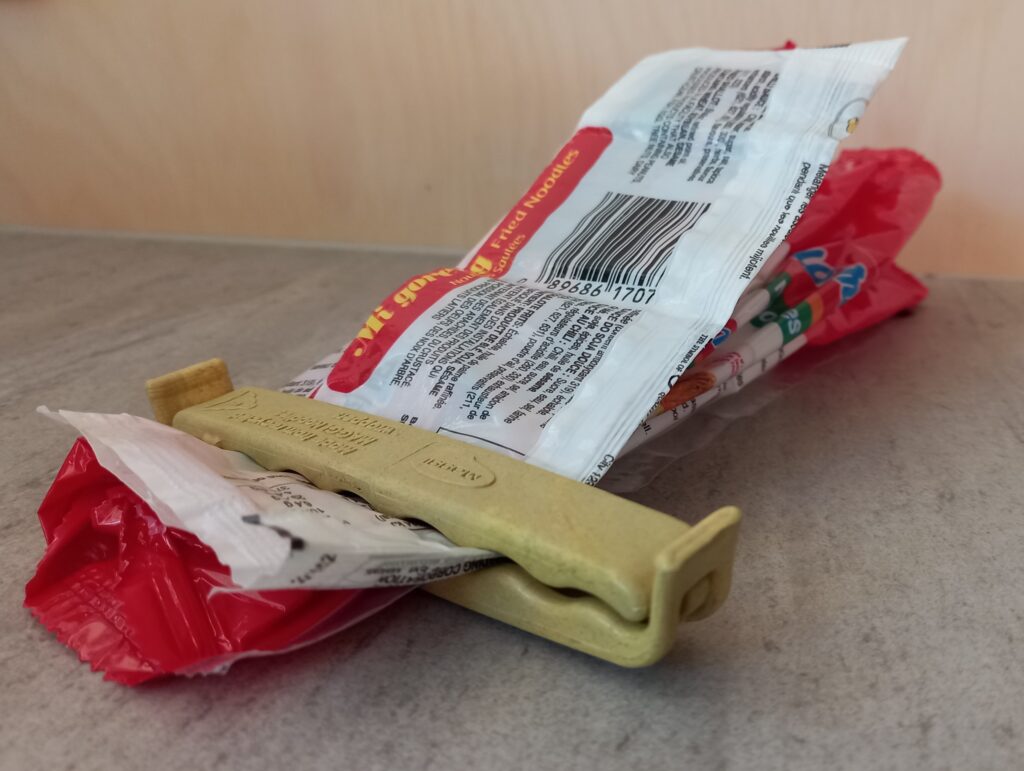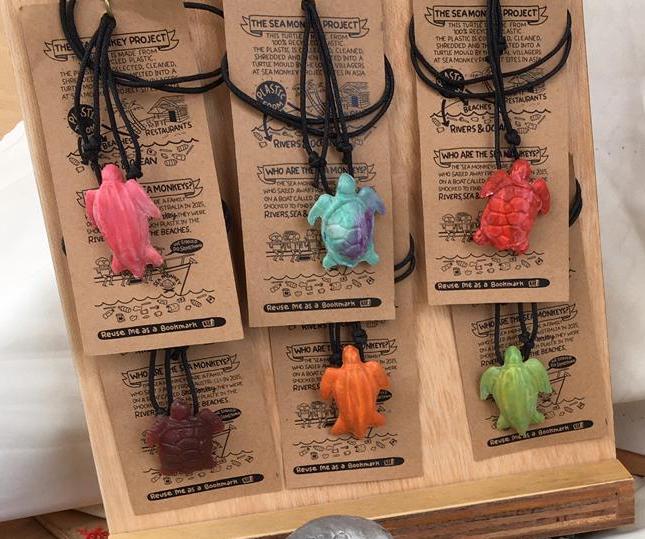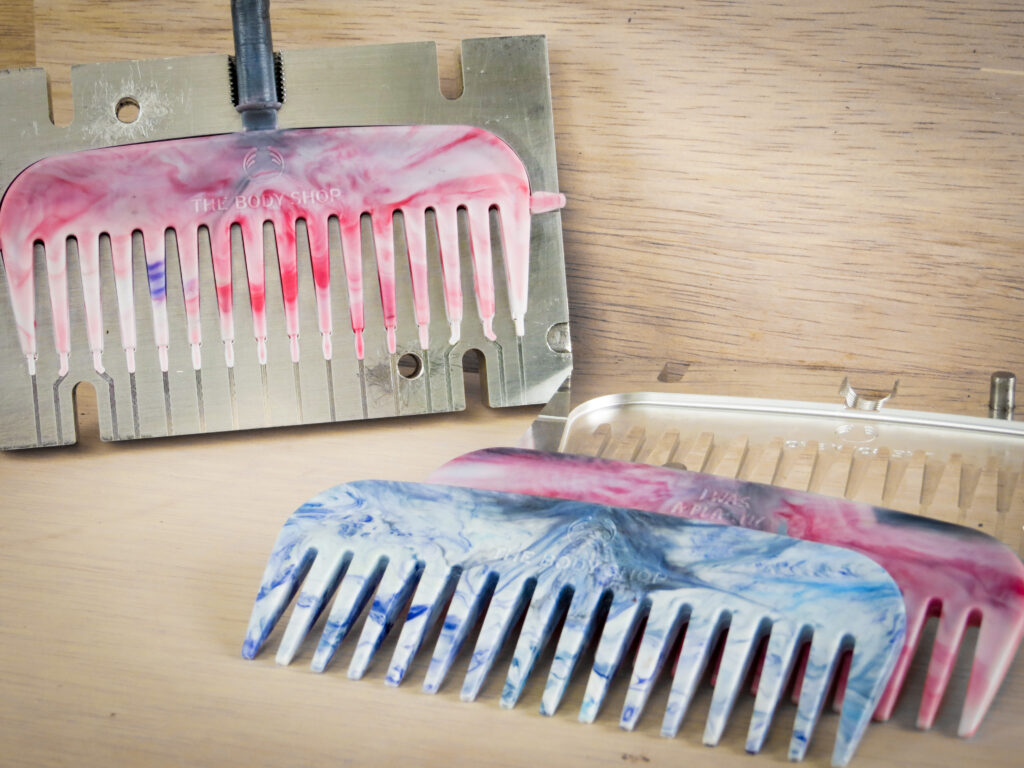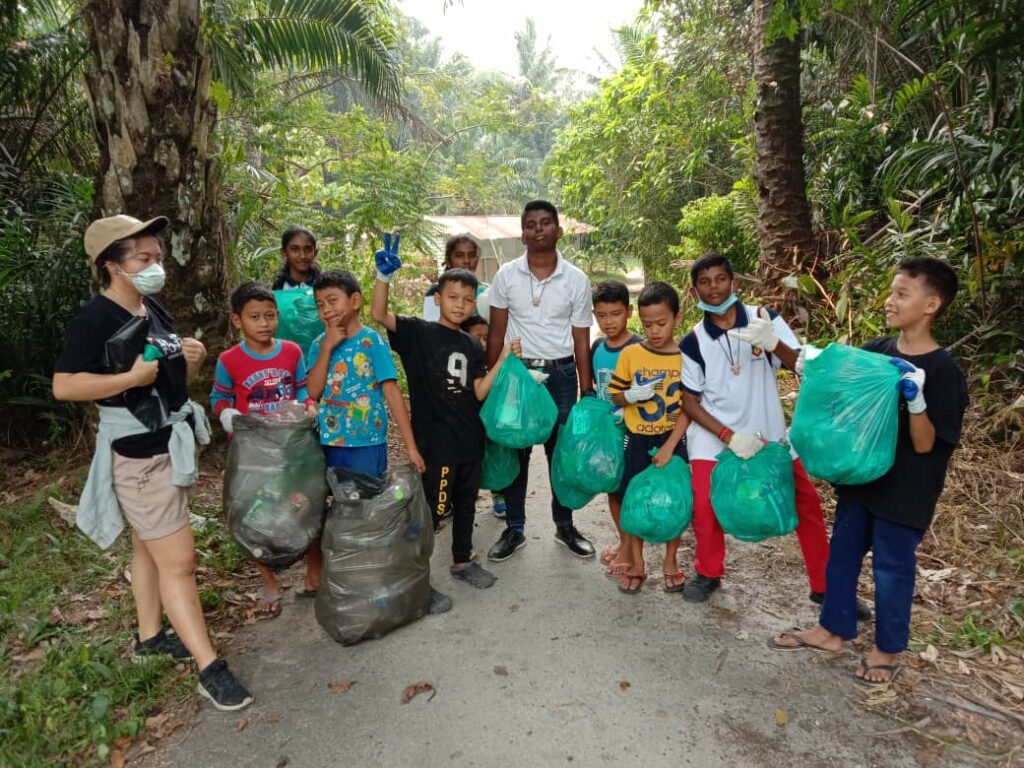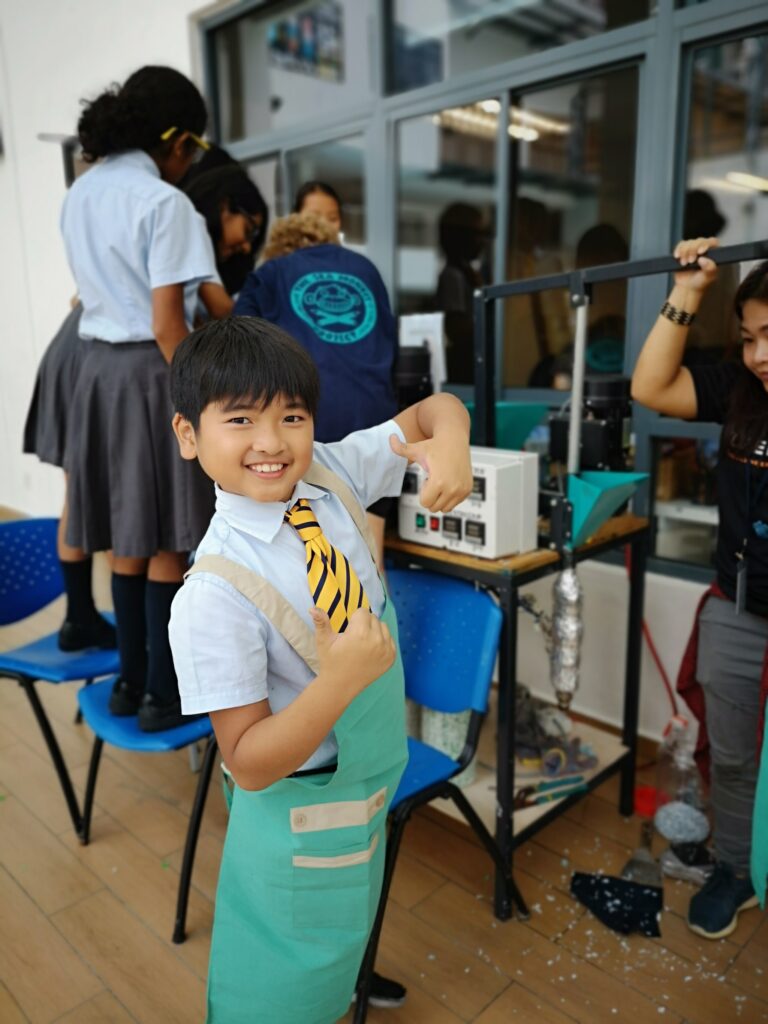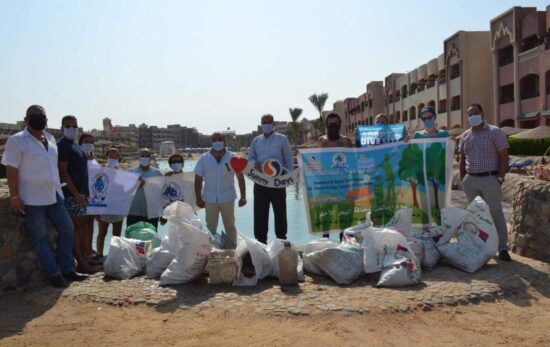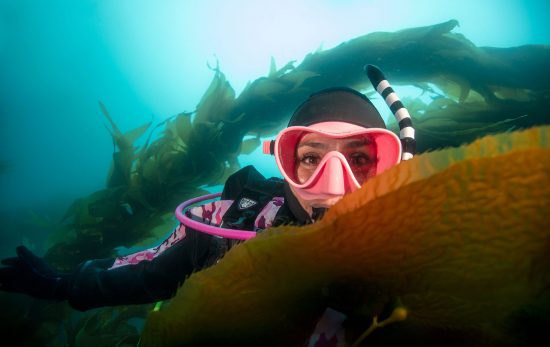After sailing to remote islands and living with local people, Australian Sailor, Diver and Torchbearer, Adrian Peck realised that they were importing plastic as food packaging and had no structures or systems in place to deal with the waste.
Loop2Cycle was born. Adrian explains, “The loop2cycle project is focused on providing remote communities with the ability to turn no-value plastic waste into high-value consumer products, profitably and sustainably. If plastic becomes valuable, people stop throwing it away. Profit is a powerful motivator for changing habits.”
Now, to fill the gaps in funding left by a reduced tourist numbers, they are turning their attention to The Perhentian Turtle Project. We spoke with Adrian to find out more about Loop2Cycle and how we can support them in protecting the turtles of Malaysia.
Who are you, where are you based and what’s your diving experience?
My name is Adrian Peck. I am an Australian Sailor and Diver and live full time on my sailing boat SV Anthem with my partner Marianna Baldo. My life of living full time on the ocean began in 2014 with the goal of sailing and diving around the world. After 7 years I am halfway.
SV Anthem is set up to operate as a “go anywhere” diving platform. We can remain remote for months at a time and spend a lot of time diving and visiting places way off the beaten track. We have sailed and dived the East Coast of Australia (from Hobart to Cape York), spent two years in Indonesia and Malaysia, traveled and dived the Andaman Islands, Sri Lanka, the entire Maldives chain, Chagos, Madagascar, two years on the East Coast of Africa (South Africa to Yemen) and the Red Sea. Anthem is currently in Aqaba Jordan. This year we are moving from the Red Sea via the Suez Canal to the Mediterranean.
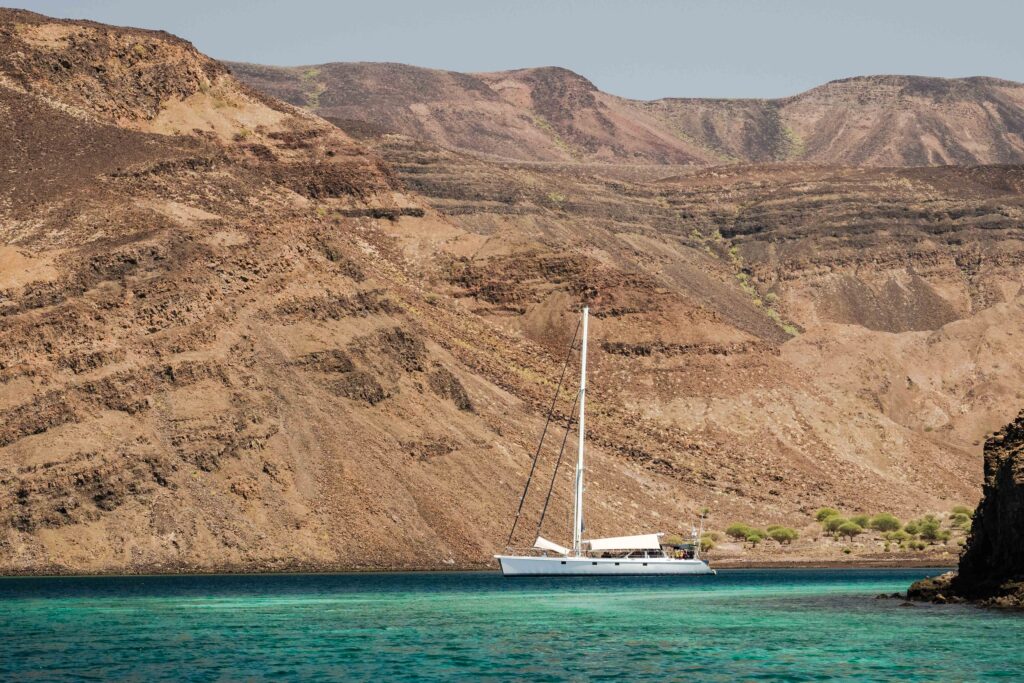
Djibouti-Anthem-in-Echo-Bay-Gorge
Why is saving the ocean important to you? What areas of conservation are you most passionate about?
The ocean is the foundation of all life and covers 70% of the earth’s surface. It is home to an incredible diversity of life and creates more than 50% of the oxygen we breathe. Using the ocean as a garbage can and slowly killing it is simply irresponsible, if like me, you like to breathe. An unhealthy ocean leads to an unhealthy planet for all. Many people are working on the various forms of negative human impact on the oceans. We are focused on reducing ocean plastic pollution as the ever-increasing growth of microplastics is killing our marine environment, from plankton to whales.
What lead you to create Loop2Cycle? What is it all about and what do you hope to achieve?
After sailing to remote islands and living with local people, we realized that they were importing plastic as food packaging and had no structures or systems in place to deal with the waste. Plastic waste was either thrown in the creek (for centuries biodegradable waste had been discarded this way, habits have not changed with the introduction of plastic) to be washed into the ocean with the next rain or burned in open pits creating significant toxic air pollution. Either way, it was an environmental disaster. The Loop2Cycle project is focused on providing remote communities with the ability to turn no-value plastic waste into high-value consumer products, profitably and sustainably. If plastic becomes valuable, people stop throwing it away. Profit is a powerful motivator for changing habits.
Please explain more about how you turn plastic waste found in the ocean into something of value? Where do you get your ocean plastic from?
We provide communities with small, highly portable machines that allow them to put plastic waste in one end and obtain consumer products out of the other. If a community does not have the machinery required to deal with their plastic waste, they have little or no ability to change their current disposal methods. We combine the delivery of the machine with the introduction of a sustainable plastic collection system. This is particularly important in remote communities that have no commercial collection infrastructure.
The combination of a machine that turns plastic waste into consumer products creates what we call a Microcyler Business. This a profitable local business, employing local people, using plastic waste to create products that they sell. Less plastic waste and more income for the community. They are manufacturing upcycled plastic products from local plastic waste.
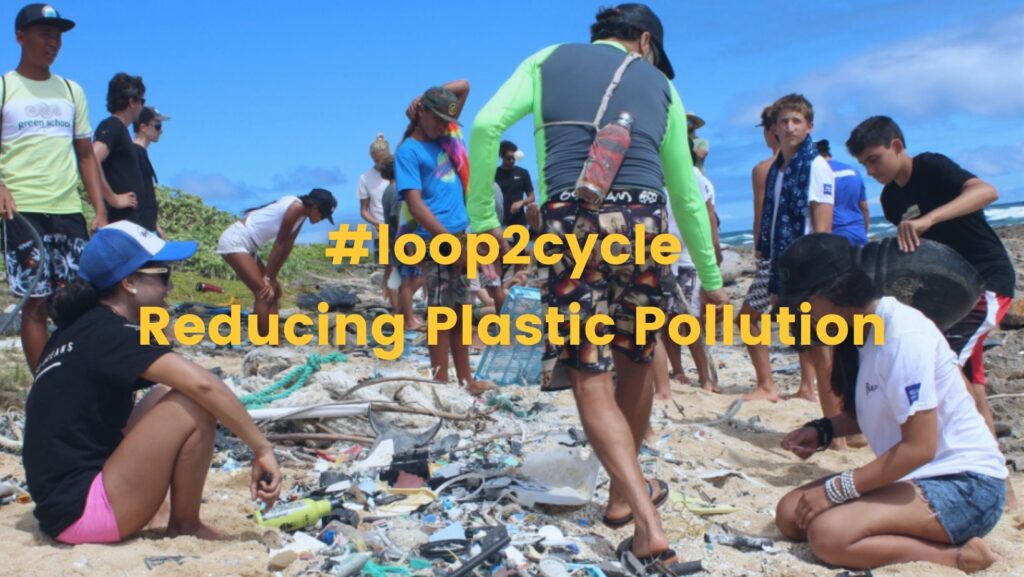
The collection of plastic at the source (i.e. it never has a chance to become pollution) is the key to a sustainable business model. Once the plastic has entered the ocean or a waterway, it quickly becomes contaminated, and its ability to be used in manufacturing is significantly reduced due to the high costs of cleaning. The key is to catch plastic waste before it becomes pollution. The collection of what we call “Ocean Bound” plastic waste is the key to successfully reducing the levels of ocean plastic. The vast majority of plastic that is collected from the ocean is only fit for a landfill due to contamination.
We think that turning a single-use piece of waste plastic into a product that will be used for years to come is just a common-sense approach to reducing plastic waste. Every time an existing piece of plastic is reused, (upcycled), new plastic does not need to be created. The delivery of a total package of new knowledge, training, and support to a community in need, ensures a successful project outcome.
Do you work with volunteers or communities? In what way and what value does it bring to your operation?
The loop2cycle business model is to spread the word about the sustainable management of plastic waste and to implement programs in communities that create employment and income. We do not rely upon volunteers as we believe that to succeed long term, a project needs to create profit for those involved. Most people in developing nations are working just to support themselves and their families on a day-to-day basis. Once we introduce a process that creates an additional source of income people become interested. We also inspire people by our actions (clean-ups, social events, etc) to become more active, informed, and sustainability-minded.
Our experience has been that no community likes the idea of having plastic waste blowing around and polluting their waterways and oceans. Many of them rely upon water sources for domestic use and food. All they need is the assistance to get started on changing habits to create additional income and employment with a social benefit focus.
We also have supplied machines to communities in developed nations who want to self-cycle their plastic waste. This includes schools, charities, and your average person, who want to reduce the amount of waste they are sending to landfill. It is sad to note that worldwide, 91% of what goes into curbside recycling bins also ends up in a landfill.
How about the Turtle Protection/Laying season you are currently hoping to raise funding for? What exactly will the funding contribute to?
The Perhentian Turtle Project (PTP) was officially established in 2015 as a sea turtle research and conservation initiative in the Perhentian Islands of Malaysia. They work with the local community, stakeholders, Department of Fisheries (DOF) and Marine Parks Division conducting surveys, nightly beach patrols (to reduce the incidence of poaching), sea turtle stranding response, and awareness campaigns.
The project was significantly funded in the past via Eco-Tourism. Due to Covid19, that source of funding ceased. PTP put the call out for funding support. As we know them well (they have a Loop2Cycle machine on Perhentian island collecting and upcycling plastic waste) we agreed to provide funds for them. The funds donated by Loop2Cycle will be used to pay wages for the local people employed to protect relocated turtle eggs until they hatch.
How can people reading this find out more and support you?
The key to the success of the local Microcycler Business is the sale of products to consumers. Every time someone purchases an upcycled product, they are creating demand. When there is a demand for upcycled products, local people need to actively collect more plastic waste. Every bit of waste plastic collected is used to manufacture more products ready for sale. More sales, more plastic collected, less pollution. The plastic waste loop is closed.
Everyone, everywhere, has the power to stop another piece of plastic from entering the ocean. Simply join us at loop2cycle.com and make a small purchase. Do something good today.
